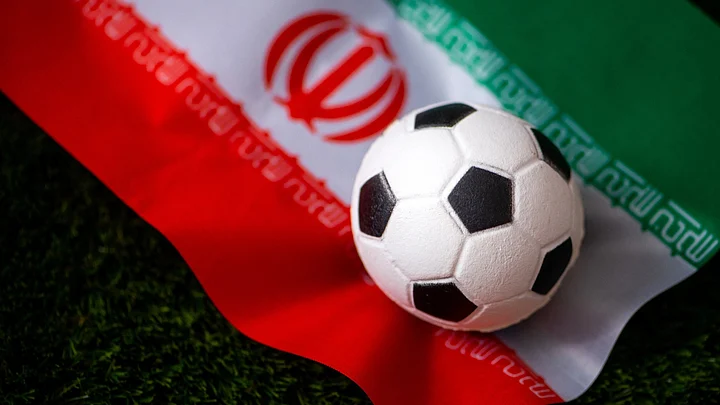Playing in the FIFA World Cup for only the sixth time in their history, the Iran national football team, long viewed and identified as the ideal imagination of the people of Iran, now stands at an unfamiliar and messy juncture.
Distanced from the masses whose collective identities and aspirations that they have usually represented. Torn down by the weight of doing what needs to be done. Hurt by the constant meddling from countries with their own selfish agendas. And despite all that, dreaming.
It was meant to be a cause of massive celebration, fireworks, unbridled joy, and ecstasy in Iran, with only the Persian Gulf separating it from Qatar, the seat of the first World Cup to be hosted in the Arab world.
The mood back home is rather grim and dark. Iran is at war with its own people.
Sports for Protests
The death of young Mahsa Amini at the hands of the country’s rigid morality police for allegedly not covering her hair properly with a hijab has sparked into nationwide protests and outrage.
An uprising against the totalitarian regime is now in force in the country, with the government responding with further clampdown of personal rights and liberties and mass arrests of protestors – the current number of detainees stands at well over 15,000.
Sport often tends to be a reflection of the society it operates in. Unsurprisingly, it quickly became a vessel for expression and change for the common people of Iran. Elnaz Rekabi, a female climber, competed at the Asian Championships in South Korea without wearing her hijab.
Iran's basketball, beach soccer, volleyball, and water polo teams have all chosen not to sing the national anthem at recent matches.
Saeed Piramoon celebrated after scoring a goal at the Beach International Soccer Cup in Dubai by mimicking to cut his hair - a gesture that has become symbolic with thousands of women opting to cut their hair in public to show solidarity with the deceased Amini and protesting against the strict hijab laws.
The biggest platform, however, comes through football. For months now, all games in the Iranian league have been played behind closed doors and in front of empty stands.
Players have refused to celebrate goals after scoring and Esteghlal FC decided to tone down their victory ceremony after their Super Cup win – no music, no fireworks. The team’s official Twitter page declared that “no one is happy,” above a video of the muted post-game ceremony.
Former Bayern Munich player Ali Karimi and Iran’s legendary goal-scorer whose international tally Cristiano Ronaldo overtook last year – Ali Daei –have also shown their support to the opposition movement.
There’s no question that the spotlight will be even greater on the men’s football team where every player, with the exception of two who support the regime, refused to sing the national anthem in their last match before the World Cup, against Nicaragua in Tehran.
Forward Sardar Azmoun, nicknamed ‘Iranian Messi’ and playing for Bayer Leverkusen in the Bundesliga, has openly expressed his criticism of the regime. Azmoun has shown solidarity with the women of his country on several occasions on social media and despite intense pressure from the Iranian Ministry of Sport to leave him out, manager Carlos Quieroz has named him in the squad to travel to Qatar.
Others have opted to take silent positions on the matter.
Karim Ansarifard and Morteza Pouraliganji refused to answer questions on solidarity with women in their country after reaching Qatar, a day after teammate Alireza Jahanbakhsh said the questions were a ploy by the western media to distract them before the World Cup.
This reticence has created a huge chasm between Team Melli and the fans. Despite enjoying the unconditional support and adoration of the millions over the years for bringing joy and representing their collective aspirations on the world stage, the national team is now losing its credibility as valid ambassadors of the country in the eyes of its people.
Calls to Exclude Iran from World Cup
"This is the team of the Islamic Republic and not that of the Iranian people," said former goalkeeper Sosha Mokani, who made five appearances for Iran between 2012 and 2018. "FIFA must exclude the team from the World Cup."
Calls for Iran’s exclusion from the World Cup aren’t just limited to reasons pertaining to the anti-hijab protests. Activists have been clamouring about long-term issues including women’s inability to access stadiums to watch matches in the country, deprivation of human rights, as well as more political reasons like providing weaponised drones to Russia to aid its invasion of Ukraine.
FIFA, as expected, has requested nations not to bring its political and ideological issues to its grand party in Qatar.
“Please do not allow football to be dragged into every ideological or political battle that exists,” said Gianni Infantino, the president of the world body.
Iran will conclude their World Cup group stage campaign after a clash with USA. They had defeated the same opponents in the 1998 FIFA World Cup to pick up the most important win in their football history.
“How could I feel to watch football when my neighbor, my brother, my countryman and countrywoman are in such a bad situation?” asks 80-year-old Jalal Talebi, the man who had coached Iran to victory in that game.
When popular vocalist Mohammed Motamedi was chosen to be the team’s official singer at the World Cup this year, she declined, writing on Instagram, “Under the circumstances, I don’t even feel like talking, let alone singing.”
Wounded voices and anguished faces are all what the people of Iran have to offer at the onset of the grandest sporting tournament in the world.
Its national team? Goals and dribbles may provide some respite, but for a group of players fractured and broken on the lines of freedom, democracy, and liberty, what happens beyond the pitch may have greater repercussions than those on it.
